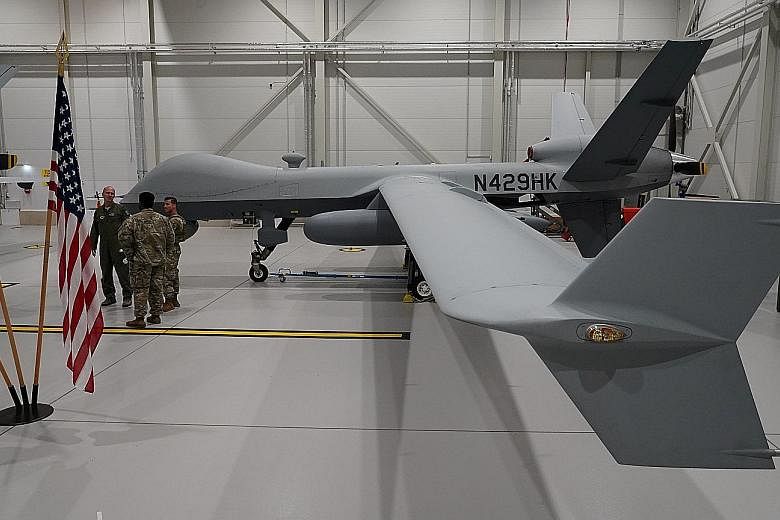WASHINGTON • A bipartisan House panel in the United States has said that artificial intelligence (AI), quantum computing, space and biotechnology were "making traditional battlefields and boundaries increasingly irrelevant" - but that the Pentagon was clinging to ageing weapons systems meant for a past era.
The panel's report, called the Future Of Defence Task Force, is one of many under way in Congress to grapple with the speed at which the Pentagon is adopting new technologies, often using the rising competition with China in an effort to spur the pace of change.
Most reach a similar conclusion: For all the talk of embracing new technologies, the politics of killing off old weapons systems is so forbidding - often because it involves closing factories or bases and endangers military jobs in congressional districts - that the efforts falter.
The task force said it was concentrating on the next 30 to 50 years, and concluded that the Defence Department and Congress should be "focused on the needs of the future and not on the political and military-industrial loyalties of the past".
"We are totally out of time, and here is a bipartisan group - in this environment - saying that this is a race we have to win and that we are currently losing," said Representative Seth Moulton, a Massachusetts Democrat who served with the Marine Corps in Iraq and was a co-chairman of the task force.
"There is a misalignment of priorities, and diminishing time to make dramatic changes."
The report calls for the US to undertake an AI effort that uses "the Manhattan Project as a model", citing the drive in World War II to assemble the nation's best minds in nuclear physics and weapons to develop the atomic bomb.
The task force found that although the Pentagon had been experimenting with AI, machine learning and even semi-autonomous weapons systems for years, "cultural resistance to its wider adoption remains".
It recommended that every major military acquisition programme "evaluate at least one AI or autonomous alternative" before it is funded.
It also called for the US to "lead in the formulation and ratification of a global treaty on artificial intelligence in the vein of the Geneva Conventions", a step the Trump administration has resisted for cyber weaponry and the broader use of AI.
But questions persist about whether such a treaty would prove useful. While nuclear and chemical weapons were largely in the hands of nations, cyber weapons - and AI techniques - are in the hands of criminal groups, terrorist groups and teenagers.
Still, the report's focus on working with allies and developing global codes of ethics and privacy runs counter to the instincts of the Trump administration, making it more surprising that the Republican members of the task force signed on.
"I think this is a case of pushing for a different path at the Pentagon," said Representative Jim Banks, an Indiana Republican and a co-chairman of the group.
This week, House Republicans plan to issue another report, aimed at containing Chinese power.
NYTIMES

